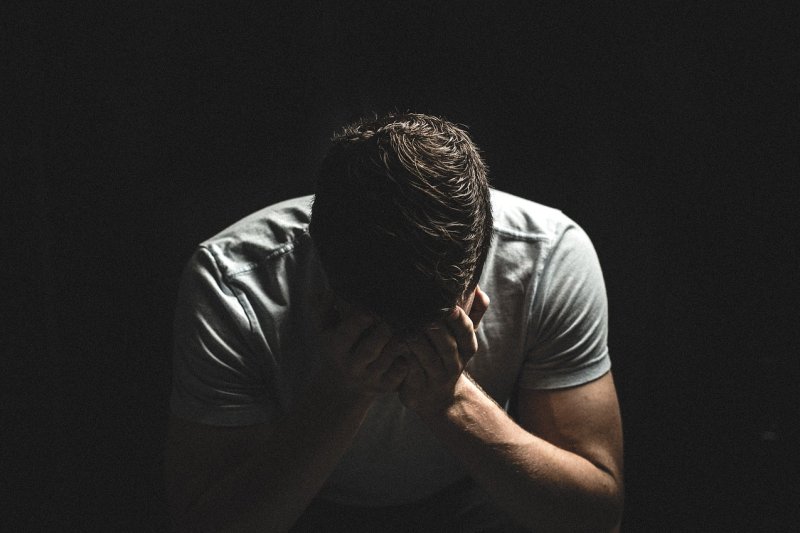COVID-19 patients show signs of depression months after diagnosis, according to a new study. Photo by StockSnap/Pixabay
March 12 (UPI) -- More than half of those with confirmed COVID-19 show symptoms of major depressive disorder up to four months after infection, a study published Friday by JAMA Network Open found.
Those who suffered from serious illness due to the virus had a five-fold higher risk for major depressive disorder than people who had mild illness or no COVID-19 symptoms at all, the data showed.
In addition, COVID-19 patients still experiencing persistent headaches related to infection four months after diagnosis were 33% more likely to have symptoms of major depressive disorder.
"Symptoms of depression are very common after COVID-19 infection," study co-author Dr. Roy Perlis told UPI.
"We in the United States have a lot of work to do to ensure that people who need treatment will have access to care -- the funds just approved by Congress are a good start, but only a start," said Perlis, associate chief for research in psychiatry at Massachusetts General Hospital in Boston.
The $1.9 trillion spending package approved by Congress earlier this week and signed by President Joe Biden on Thursday allocates $4 billion to mental and behavioral health treatment related to the pandemic.
Major depressive disorder is a serious mood disorder that causes severe symptoms that affect cognitive function, activities of daily living and sleeping, eating, or working, according to the National Institute of Mental Health.
People with the disorder experience severe and persistent depression that leads to loss of interest in activities, the institute says, estimating that up to 3 million cases of major depressive disorder are diagnosed in the United States annually.
For this study, Perlis and his colleagues surveyed more than 3,900 adults who had confirmed COVID-19 infection between June 2020 and January of this year.
Participants were surveyed roughly four months after being diagnosed with the disease.
Among the respondents, 2,046, or just over 52%, reported symptoms of major depressive disorder.
Women were approximately 30% less likely to have signs of the disorder following COVID-19 infection than men.
"We know that rates of depression [nationally] are much higher than prior to COVID-19, presumably because of the prolonged stress and social isolation, but we don't know why these rates are even higher in people who have been ill with [the virus]," Perlis said.
"It's possible that all of this elevation is explained by the stress of a serious illness -- one that can have persistent physical symptoms, as well, [but] it's also possible that these are persistent consequences of the infection," he said.















